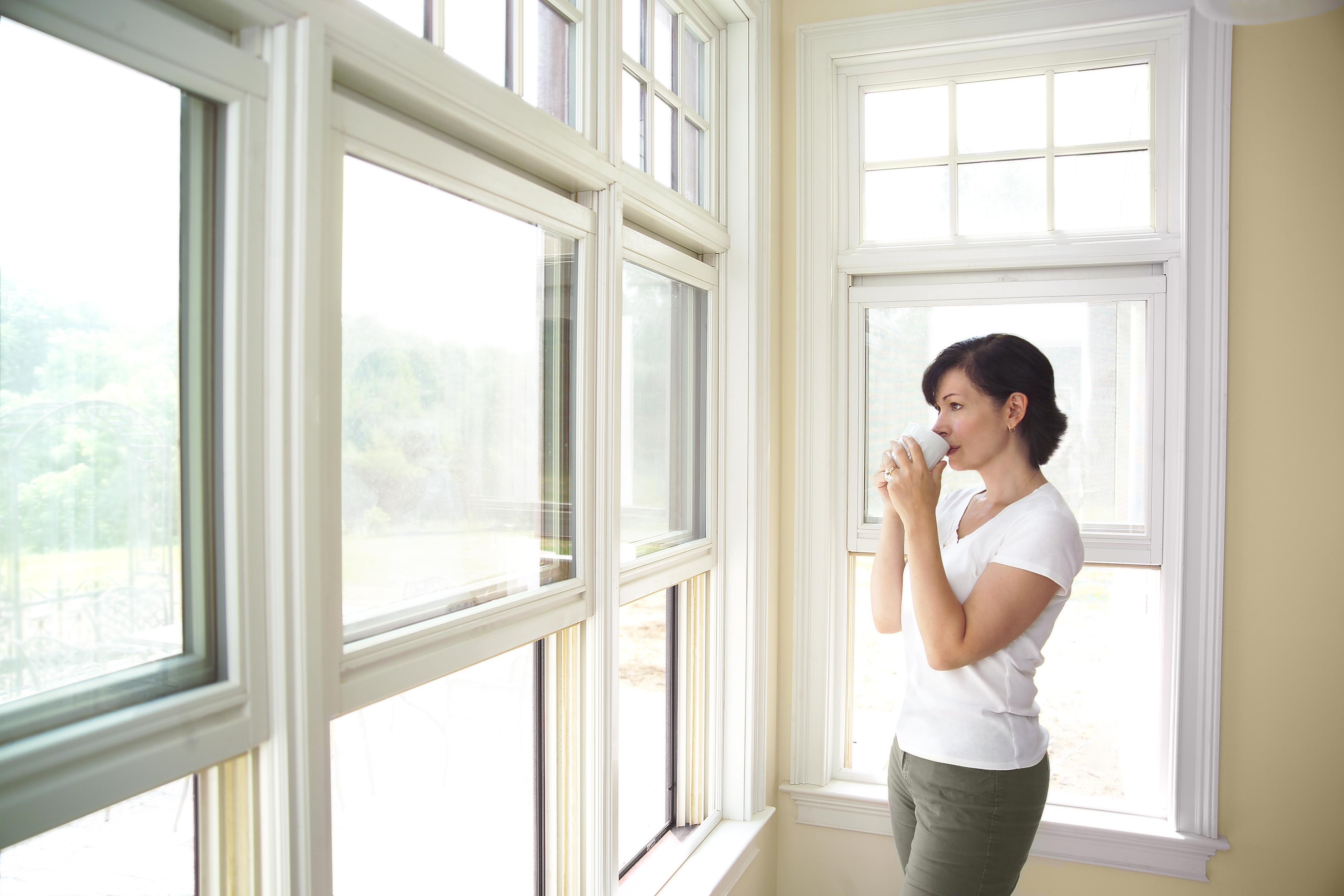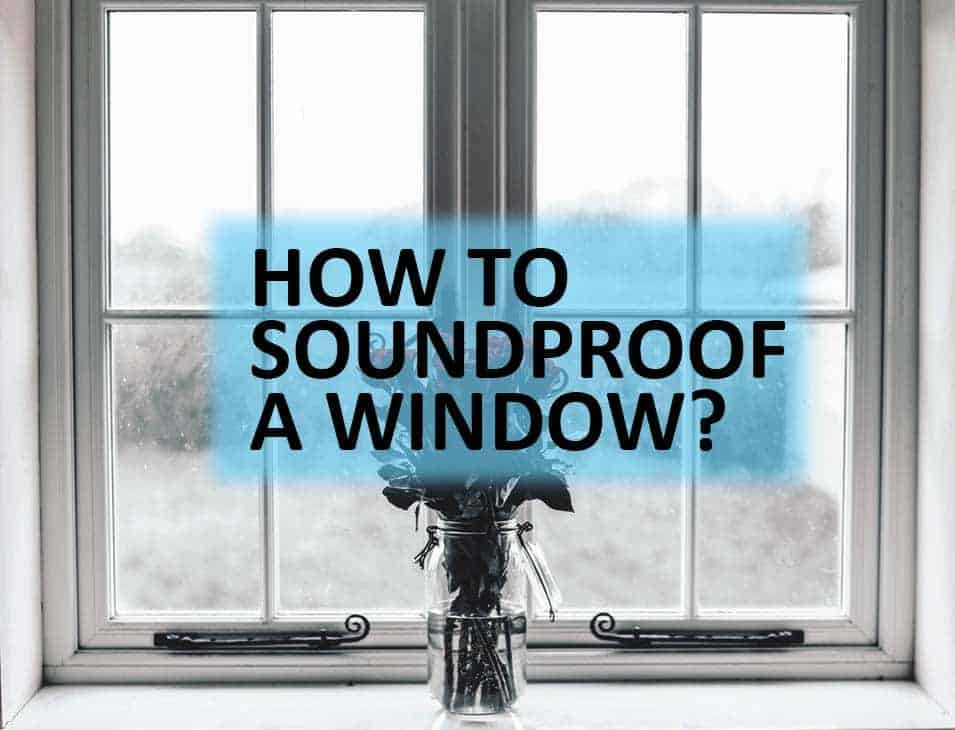Soundproofing windows can transform your space. It reduces noise and enhances comfort.
Living in a noisy environment can be frustrating. Whether it’s traffic, neighbors, or construction sounds, unwanted noise disrupts peace. Soundproofing windows is a practical solution. It creates a quieter, more serene home or office. Many methods exist, from simple DIY fixes to professional installations.
Understanding these options helps you choose the best for your needs. This blog will explore effective ways to soundproof windows. You’ll discover practical tips and solutions to enjoy a quieter environment. Ready to learn more about soundproofing your windows? Let’s dive in!
Introduction To Soundproofing Windows
Soundproofing windows is essential for a peaceful home. Noise can disrupt sleep, work, and relaxation. This guide will show you the best ways to soundproof your windows and enjoy a quieter environment.
Importance Of Quiet Homes
A quiet home is a sanctuary from the outside world. It helps improve sleep quality and reduces stress levels. Peaceful homes allow for better concentration and productivity. Soundproofing your windows can help achieve this tranquility.
Common Sources Of Noise
Noise can come from various sources. Understanding these sources can help you address them effectively.
| Source | Description |
|---|---|
| Traffic | Cars, trucks, and motorcycles passing by your home. |
| Construction | Building work and road repairs near your home. |
| Neighbors | Sounds from neighboring homes or apartments. |
| Nature | Wind, rain, or animals making noise outside. |
- Install double-glazed windows.
- Use thick curtains or window plugs.
- Add weatherstripping around window frames.
- Consider soundproof window inserts.
These methods can help reduce noise significantly. Each solution has its own benefits and can be combined for better results.

Credit: residential-acoustics.com
Assessing Your Noise Problem
Before soundproofing your windows, you need to assess your noise problem. Understanding the type and level of noise is crucial. This helps you choose the right soundproofing method.
Identifying Noise Levels
Identifying noise levels is the first step. You can use a decibel meter or a smartphone app. Measure the noise at different times of the day. Note the highest and lowest levels.
Here’s a simple guide:
| Noise Level (dB) | Description |
|---|---|
| 30-40 dB | Quiet, like a library |
| 40-60 dB | Moderate, like a normal conversation |
| 60-70 dB | Loud, like a busy street |
| 70-90 dB | Very loud, like a lawnmower |
Types Of Noise
Understanding the types of noise is also important. There are different kinds of noise:
- Airborne Noise: Comes from outside. Examples: traffic, voices, music.
- Impact Noise: Comes from physical impacts. Examples: footsteps, slamming doors.
- Structural Noise: Travels through building structures. Examples: plumbing, ventilation systems.
Each type of noise requires a different approach. Knowing the type of noise helps you choose the best solution.
By assessing your noise problem, you can effectively soundproof your windows. This ensures a quieter and more peaceful home environment.
Basic Soundproofing Techniques
Windows are common sources of noise intrusion. To create a quieter home, soundproofing windows is essential. Here are some basic soundproofing techniques to help you reduce noise effectively.
Sealing Gaps And Cracks
Gaps and cracks around windows let noise in. Sealing them can make a big difference. Use weatherstripping tape to cover small gaps. It’s easy to apply and removes easily if needed. For larger cracks, use acoustic caulk. It stays flexible and blocks noise better than regular caulk. Ensure you cover all gaps around the window frame. Don’t forget the area where the window meets the wall.
Using Thick Curtains
Thick curtains can also help reduce noise. Look for curtains made from dense materials. Velvet and blackout curtains work well. Hang them as close to the window as possible. For best results, let them touch the floor. This helps block more noise. You can also layer curtains for extra soundproofing. Use a decorative curtain over a heavy, noise-blocking curtain. This adds style and enhances noise reduction.
Advanced Soundproofing Methods
Advanced soundproofing methods can significantly reduce noise. These methods are more effective than basic techniques. They often involve specialized materials and professional installation. Below are two advanced methods: installing double glazing and adding window inserts.
Installing Double Glazing
Double glazing involves two layers of glass. These layers have a space between them. This space acts as an insulator. It helps to reduce noise. Double glazing is effective in blocking out external sounds. It also improves energy efficiency.
The installation process usually requires professional help. It may involve removing the old window. Then, fitting the new double-glazed window. The cost can be higher, but the benefits are worth it.
Adding Window Inserts
Window inserts are another advanced method. These are clear glass or acrylic panels. They fit snugly inside the existing window frame. They create an extra barrier against noise.
Window inserts are easy to install. No need to replace the entire window. They can be removed when not needed. They are also more affordable than double glazing. They offer a good balance of cost and performance.
Below is a comparison table of the two methods:
| Method | Noise Reduction | Cost | Installation |
|---|---|---|---|
| Double Glazing | High | Higher | Professional |
| Window Inserts | Moderate | Lower | DIY/Professional |
Both methods have their pros and cons. Choose the one that fits your needs and budget. Either way, your home will be quieter and more comfortable.
Materials For Soundproofing
To effectively soundproof your windows, choosing the right materials is crucial. Different materials offer varying levels of sound reduction. Here, we will discuss some of the most effective materials for soundproofing windows. These include acoustic foam panels and soundproofing films. Each has unique features that contribute to reducing noise.
Acoustic Foam Panels
Acoustic foam panels are an excellent choice for soundproofing. They are made from special foam that absorbs sound waves. This helps in reducing the amount of noise that passes through your windows.
- Easy to Install: Acoustic foam panels are simple to install. You can cut them to fit any window size.
- Cost-Effective: They are affordable and provide good value for money.
- Lightweight: These panels are lightweight, making them easy to handle.
Acoustic foam panels come in different colors and patterns. This allows you to choose one that matches your room decor. They are not only functional but also add an aesthetic appeal to your space.
Soundproofing Films
Soundproofing films are another effective material for window soundproofing. These films are thin and transparent, yet they offer excellent noise reduction.
- Transparent: They do not block light, maintaining the brightness in your room.
- Heat Insulation: Soundproofing films also provide heat insulation, reducing your energy bills.
- Durable: These films are durable and can last for many years.
Applying soundproofing films is easy. You can simply stick them onto your windows. They are also removable, allowing you to take them off without damaging your windows. This makes them a flexible option for renters.

Credit: www.wikihow.com
Diy Soundproofing Tips
Soundproofing windows can be an effective way to reduce unwanted noise. You don’t always need professional help to achieve this. There are many DIY methods that can help you soundproof your windows. In this section, we’ll explore some budget-friendly solutions and the tools you need to get started.
Budget-friendly Solutions
There are many cost-effective ways to soundproof windows. One simple method is to use heavy curtains. These curtains can block out a lot of noise. You can find these curtains online or at home stores.
Another option is to use window inserts. These inserts fit inside your window frames. They create an extra layer that blocks sound. You can buy these inserts or make your own with acrylic sheets.
Weatherstripping is another affordable solution. This method involves sealing gaps around your windows. It helps keep noise out and improves insulation. You can buy weatherstripping materials at hardware stores.
Tools You Need
For DIY soundproofing, you will need a few basic tools. A tape measure will help you get accurate measurements. Scissors or a utility knife will be useful for cutting materials.
To install heavy curtains, you will need a curtain rod and brackets. A drill and screws will help you secure the brackets to the wall. For window inserts, you might need a saw to cut the acrylic sheets to size.
If you are using weatherstripping, you will need adhesive tape. A putty knife can help you press the tape into place. Make sure you have all these tools before you start your DIY project.
Professional Soundproofing Services
Soundproofing windows can be a complex task. Professional soundproofing services offer a range of solutions. These experts have the skills and tools to ensure effective noise reduction. They can assess your needs and recommend the best options for your home.
When To Hire Experts
It is best to hire experts when facing persistent noise issues. If DIY methods fail, professionals can step in. They handle larger projects and provide better results. Complex window structures may require their skills. Professionals can also handle high-rise buildings safely.
Cost Considerations
The cost of hiring soundproofing experts varies. It depends on the project size and complexity. Basic services may be more affordable. Specialized solutions or high-end materials can increase costs. Always get multiple quotes. Compare them to find the best value.
Maintaining Your Soundproofed Windows
Soundproofing your windows is a great way to reduce noise. But, to keep them effective, regular maintenance is crucial. Here’s a guide on how to maintain your soundproofed windows.
Regular Inspections
Inspect your soundproofed windows regularly. Look for any gaps or cracks. These can allow noise to enter. Check the seals around the window edges. They should be tight and secure.
Use a simple checklist during your inspections:
- Look for visible gaps or cracks.
- Check the seals around the window edges.
- Ensure the window frame is intact.
- Test the soundproofing by closing the window and listening for outside noise.
Regular inspections help in identifying issues early. This ensures your windows remain effective.
Upgrading Over Time
Sometimes, it’s necessary to upgrade your soundproofing materials. Over time, materials can wear out. Newer materials may offer better soundproofing. Consider upgrading your windows if you notice a drop in performance.
Here are some upgrades to consider:
- Install double or triple-pane windows for better insulation.
- Use acoustic caulk to seal gaps.
- Add soundproof curtains for extra noise reduction.
- Install window inserts to improve soundproofing.
Upgrading your soundproofing materials can improve the longevity and effectiveness of your windows. It ensures you continue to enjoy a quieter home.

Credit: soundproofingguide.com
Frequently Asked Questions
What Is The Best Way To Soundproof Windows?
The best way to soundproof windows is by using double glazing. Adding heavy curtains and weatherstripping also helps. These methods block out noise effectively.
How Do I Soundproof My Windows Cheaply?
You can soundproof windows cheaply with thick curtains and window inserts. Weatherstripping and sealing gaps are affordable methods too.
Can Window Inserts Reduce Noise?
Yes, window inserts can significantly reduce noise. They create an additional barrier that blocks sound waves. They are also easy to install.
Are Soundproof Curtains Effective?
Soundproof curtains are effective at reducing noise. They are made from thick, dense materials. They also help to absorb and block sound.
Conclusion
Soundproofing your windows enhances comfort and peace at home. Simple methods like adding heavy curtains or using weatherstrips can reduce noise effectively. Installing double-glazed windows offers a long-term solution. Combining these techniques ensures better results. Always consider your specific needs and budget.
A quieter home improves relaxation and focus. Start with small changes and gradually upgrade for best outcomes. Enjoy a serene and noise-free living space!

